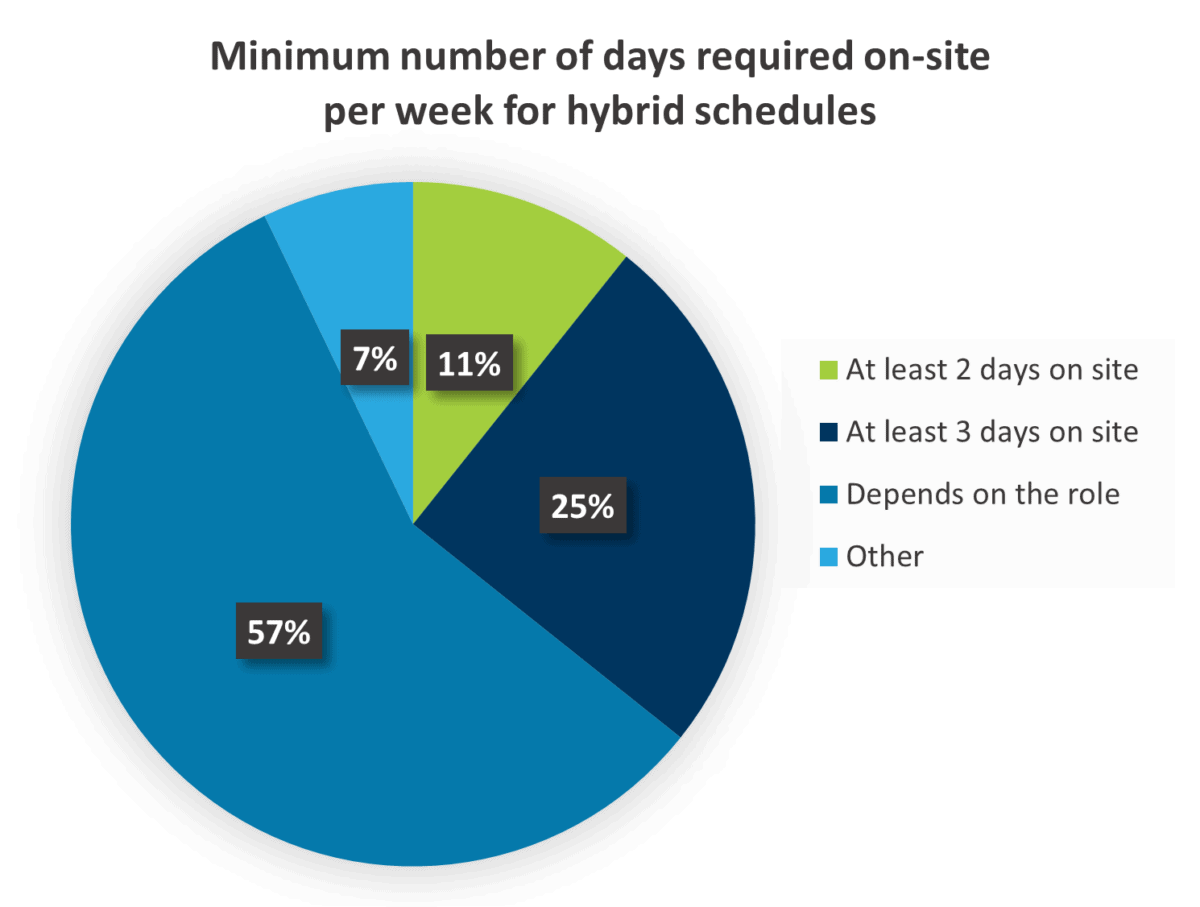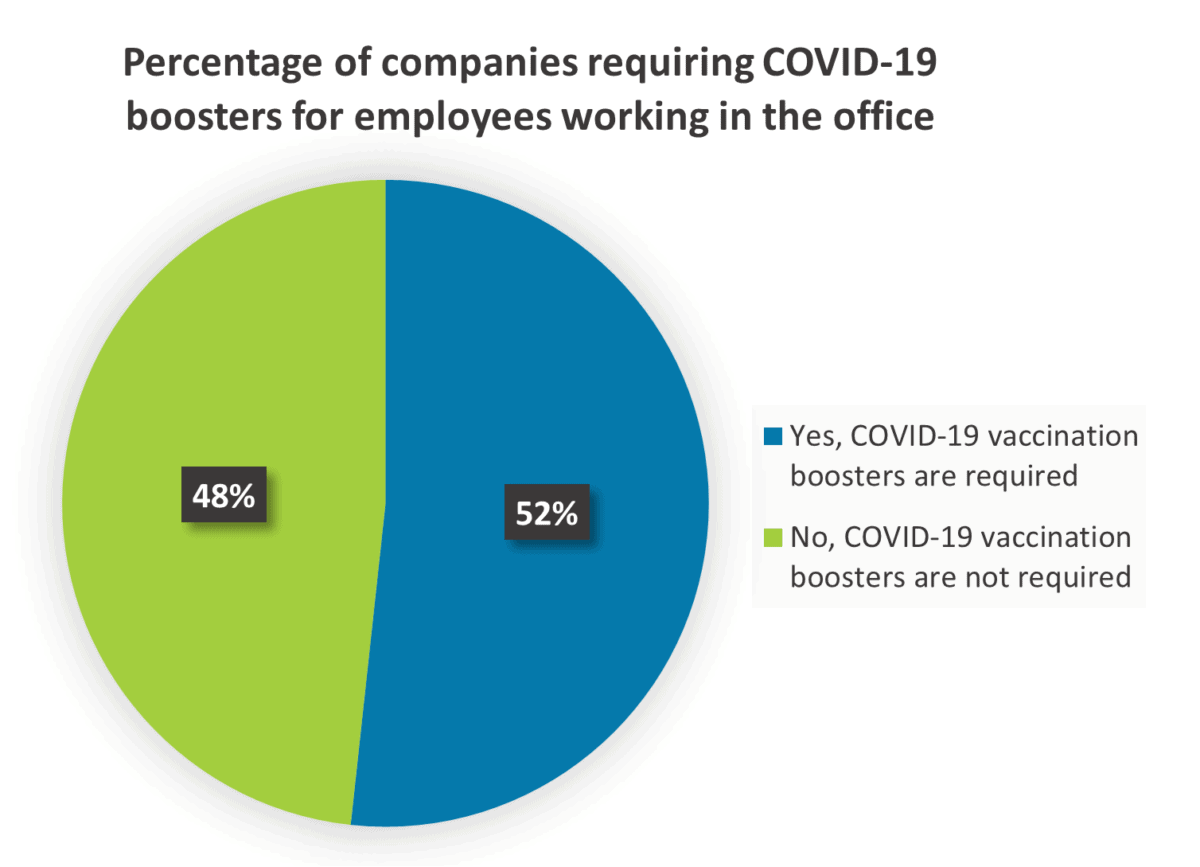
The decisions we – as life sciences companies – make regarding workplace models have wide-ranging impacts. For an industry that employs over 89,000 Massachusetts residents, the choice to have employees work in the office, work from home, or a hybrid model which includes both, has impacts on traffic congestion, public transit ridership, commuting patterns, childcare, and housing.
Despite the size and impact of this industry, we have managed to quickly adapt to the ongoing public health emergency. In the past month, 77 percent of life sciences companies have changed their return-to-office strategy as a result of the COVID-19 surge and Omicron variant.

Between January 18 and January 26. 2022, MassBio conducted a survey with a subset of our life sciences member companies, who participate in MassBio’s Human Resources Roundtable. The purpose of the survey was to gather information on back to office plans. The survey was completed by 31 life science companies ranging in size from fewer than 20 employees to upwards of 500 employees. About half of respondents employ between 51 and 150 individuals. While many of those who completed the survey represent life science companies in the Boston and Cambridge cluster, there were also a number of companies along Route 128, and participation from MetroWest.
These data are key to empowering our members to make well-informed workplace and workforce decisions. While we face the same obstacles, each of MassBio’s more than 1,400 member companies are unique, and addressing these challenges requires a personalized approach. This survey is aimed to support our members in implementing workplace models that work best for them.

If your company has implemented a flexible schedule working in the office and from home, you are not alone. Ninety-seven percent of respondents anticipate implementing a hybrid work model for the long-term. For 57 percent of companies, the number of days an individual employee is required to work on-site depends on their role.
An essential aspect of returning to the office is gauging what health and safety measures are necessary. Nearly 8 in 10 workplaces are requiring employees to wear masks while working on-site. For more than half of respondents, a COVID-19 vaccination booster is required for employees working in the office.
Some companies have taken steps to provide the resources necessary to meet these health and safety requirements. Sixty-eight percent of respondents provide masks to those working on-site, and 38 percent of respondents provide regular COVID-19 testing for those working on-site.

Only 37 percent of respondents are hosting in-person meetings. While smaller meetings may have a slower return, conferences and out-of-office gatherings that cannot be replicated over virtual meeting platforms are continuing. Eighty-six percent of surveyed companies are allowing employees to attend external in-person events and conferences.
These data are a starting point for many looking for assistance in making critically important workforce decisions, but it is not the end point. MassBio’s Roundtables meet quarterly to discuss best practices, exchange ideas, and identify solutions to the complex problems we face, like deciding when and how to allow employees back on-site. Email me to learn more about MassBio’s Roundtables, and how to join the Human Resources Roundtable.
Our industry is made stronger when we are well-informed. Getting the right data is integral to the growth and success of life sciences in Massachusetts. MassBio has expanded our workforce development initiatives. To start assessing how we can meet the needs of this expanding workforce, we have launched a Workforce Survey. Contact us to complete this 10-minute, confidential survey to inform the strategic direction of growing and diversifying the life sciences talent pipeline.